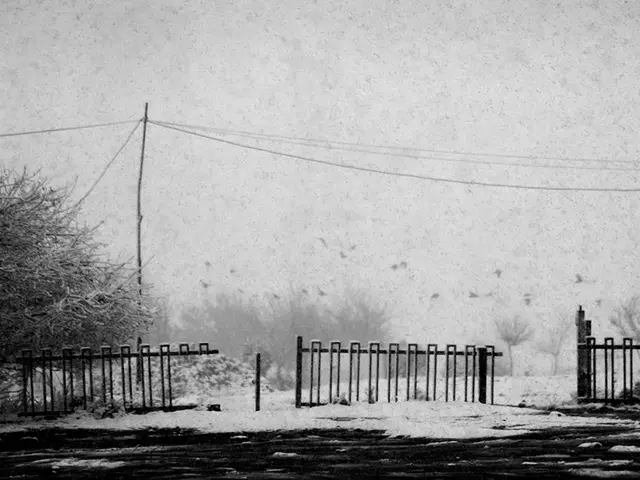Unleashing an Online Hate Wave: Media Watchdogs Fight Back
In the wake of the Hamas attack on Israel, media watchdogs are reporting a surge in online hatred and incitement. Tobias Schmid, Director of the Media Authority of North Rhine-Westphalia, boldly stated, "What we've been experiencing here since the Hamas attack is extreme." In a four-week period, 570 potentially punishable cases were identified and reported to the EU Commission with the help of artificial intelligence.
The AI software Kivi, introduced two years ago, has already detected over 40,000 potential legal violations on the Internet. With the ability to evaluate over 10,000 posts daily, Kivi suggests these cases to lawyers for further examination. The investigative proceedings are initiated in nearly half of these cases, illustrating the tool's effectiveness.
NRW takes a firm stance on prosecuting hate speech, according to NRW Media Minister Nathanael Liminski (CDU). "We need to be effective here so that those who spread their garbage realize their feet are being stepped on." Liminski identified the Russian platform VK as a significant challenge, referring to it as "almost unregulated muckrakers."
Anti-Semitic and anti-Muslim content are prevalent in the postings, reported by experts from the state media authority. Alleged hate speech, human dignity violations, and disinformation are recorded and forwarded to the EU Commission. The social media platforms are also pressured to delete the illegal content.
Although most potentially criminal content has been discovered on VK and Telegram, X (formerly Twitter) has seen a recent increase in potentially illegal material, reported Laura Braam, head of the supervisory team. The State Media Authority of North Rhine-Westphalia coordinates the monitoring nationwide for the 16 state media authorities and Europe-wide for the EU Commission.
As digital venues for hate speech and incitement, social media platforms require more diligence and cooperation between law enforcement agencies and platforms to eradicate and hinder the spread of such illicit content.
Courtesy of:
In an effort to combat online hate speech and incitement, various key strategies and initiatives have been employed by media watchdogs, particularly towards Jewish and Muslim communities:
- Monitoring and Exposing Hate Groups:
- Organizations such as the Southern Poverty Law Center (SPLC) have taken measures to monitor and expose the activities of radical hate groups targeting Jewish and Muslim communities.
- Reporting and Documentation:
- Organizations like the SPLC document and report on hate incidents, including online hate speech, to garner attention and pressure social media platforms to take action.
- Social Media Platform Pressure:
- Media watchdogs are rallying against social media platforms like VK, Telegram, and X (formerly Twitter) to implement stricter policies against hate speech and incitement, seeking greater transparency and accountability.
- Public Awareness Campaigns:
- Initiatives aim to raise public awareness about the consequences of online hate speech and incitement, highlighting victims' stories to rally support for anti-hate efforts.
- Legislative Advocacy:
- Advocates are lobbying for legislation focused on curbing online hate speech, pushing for platforms to remove hate content in a timely manner.
- Community Engagement and Support:
- Organizations are actively engaging with Jewish and Muslim communities to provide resources and support, counteracting the effects of online hate speech and incitement.
- Technological Solutions:
- Researchers are exploring technological solutions to combat hate speech on social media, experimenting with algorithms and tools designed to automatically detect and remove toxic content.
These initiatives strive to create a safer online environment for all communities, in response to increased hate speech and incitement following the Hamas attack on Israel.







